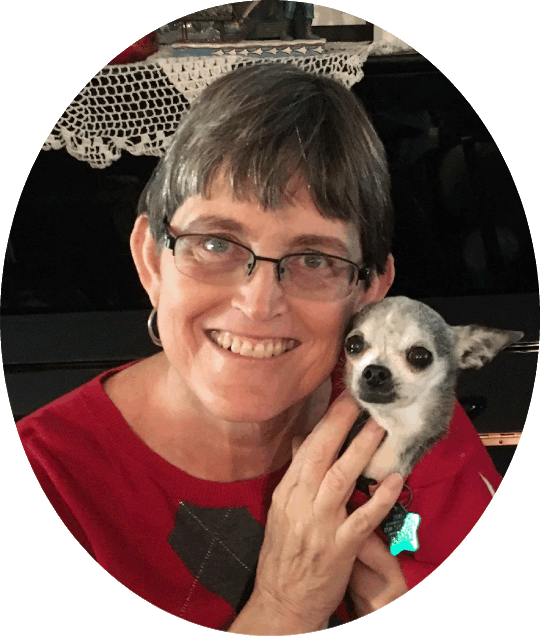
Dr. Martha Neuropsychiatrist
As a neuropsychiatrist, I work on the fuzzy border between neurology and psychiatry. I treat patients suffering from various neurological disorders that manifest with psychiatric symptoms. My work includes such disorders as traumatic brain injury (TBI), seizure disorders, autism, attention deficit hyperactivity disorder (ADHD) and auto-immune disorders. Through my long years of work with veterans and victims of abuse, I also treat Post-traumatic Stress Disorder (PTSD).
I believe, at the core, all psychiatric disease will eventually be linked to a neurological cause. The bridge of science and spirit will also lead to validation of the spiritual element in all dis-ease. There should be no line drawn between mental, physical and spiritual. Instead, there should be a circle drawn encompassing the whole of any illness as arising from dis-ease at all levels of the Human Being: mental, physical and spiritual. I thus bring all my so-called “hats” into my practice of medicine, integrated, holistic, natural, yet not shying away from useful pharmaceutical tools. The scientist in me, though, still remains fascinated by the human brain!

Everyone’s brain is unique. Neither doctors nor scientists to this day know a whole heck of a lot how anyone’s brain really works. Yet, I have seen the devastating effects of traumatic brain injury, post-viral autoimmune disorders and severe life trauma can have on this vital and mysterious organ. I have thus dedicated my practice and my research to this often-ignored field of medicine. Most doctors pretend not to recognize the reality of these effects because none of us really know what to do for them. That is why many patients suffering from these disorders arrive at my doorstep. It is their sanctuary of “last resort.” Even though I have no easy answers or magic cures, at least I take the time to listen and to believe. I hope that one day the research I carry out can make a difference.
I am also one of those rare psychiatrists who still employ counseling or talk-therapy in my work. I am often criticized for this practice as the medical standard is for psychiatrists to only work in the area of drugs. Psychologists do the talking.
Most folks don’t know the difference between a psychiatrist and a psychologist. Heck, I have trouble just remembering how to spell the two! Both treat mental health problems like depression, anxiety, stress, etc. The main difference is that psychiatrists are primarily expected to focus on medications to treat these issues. Psychologists use the varied counseling and therapy methods available to assist in healing mental health problems.
Psychiatrists have to go to medical school or osteopathic school for 4 years to get an M.D. or D.O. then to residency training in Psychiatry for 4 additional years. Finally, they are let loose to “practice” medicine, which is where the real learning occurs.
There are more varied paths open to become a psychologist. There are also many forms of psychology including an actual “psychologist” or others such as licensed clinical social worker and licensed mental health counselor. The typical journey is a 4-year bachelor's degree in psychology or social work then a master’s or doctoral program. The latter allows one to put “Dr.” in front of their name. Internship hours working under a licensed psychologist or social worker are then clocked for about a year before state licensing exams can be taken and hopefully passed. Then, the shingle can be hung.
In the past, psychiatrists employed both medications and therapy in their work. However, during the 1960’s when Big Pharma began churning out psychiatric medications for big bucks, the trend shifted to more prescription writing and less talk therapy. Sadly, the standard is now the 15-minute “med check” visit (10 minutes with the patient, 5 minutes to get your legally-required note typed into the computer). The 10 minutes typically involve: “Are you eating, sleeping, and crapping? Has the drug killed you yet? Okey dokey, here’s your prescriptions. See you in another 3 months.” All spoken to the computer, not the patient.
I find that transition in my profession very sad indeed. That’s why I left the community mental health job. I loved the patients and the salary was nice, but the 15-minute visits stank. There was no time to really talk with the patient. In my many years of practice, the one absolute I have learned is that medications alone never do the trick. There is no magic quick fix. You need to learn to listen to your patients. I have learned more from them than any medical text or school could ever teach.
I started my little private practice which makes very little money, but is much more satisfying to the soul. Since I trained in both neurology and psychiatry, I am a neuropsychiatrist which, as noted above, means I work with the interface between neurological disorders and psychiatric illness. My passion is for learning about the brain as it continues to be the great mystery of medicine. I consider it a “Holy Grail” well-worth pursuing if even a bit of what I learn can make a difference. This path has not been an easy one, but I do believe I chose it from the heart.
Dr. Martha believes the critical component of any healing process is through the link between mind. body and spirit. Thus, please look at the offerings from the other “Dr. Marthas” especially “Natural Healer/Seer” and her books, web offerings as important information, classes and lectures are provided there for fostering this link. Below are listed the more conventional modalities available as a start to your healing path.
Note that Telehealth visits are available as well as “in-office” sessions for all but medical marijuana evaluations as these must be “in office.”
